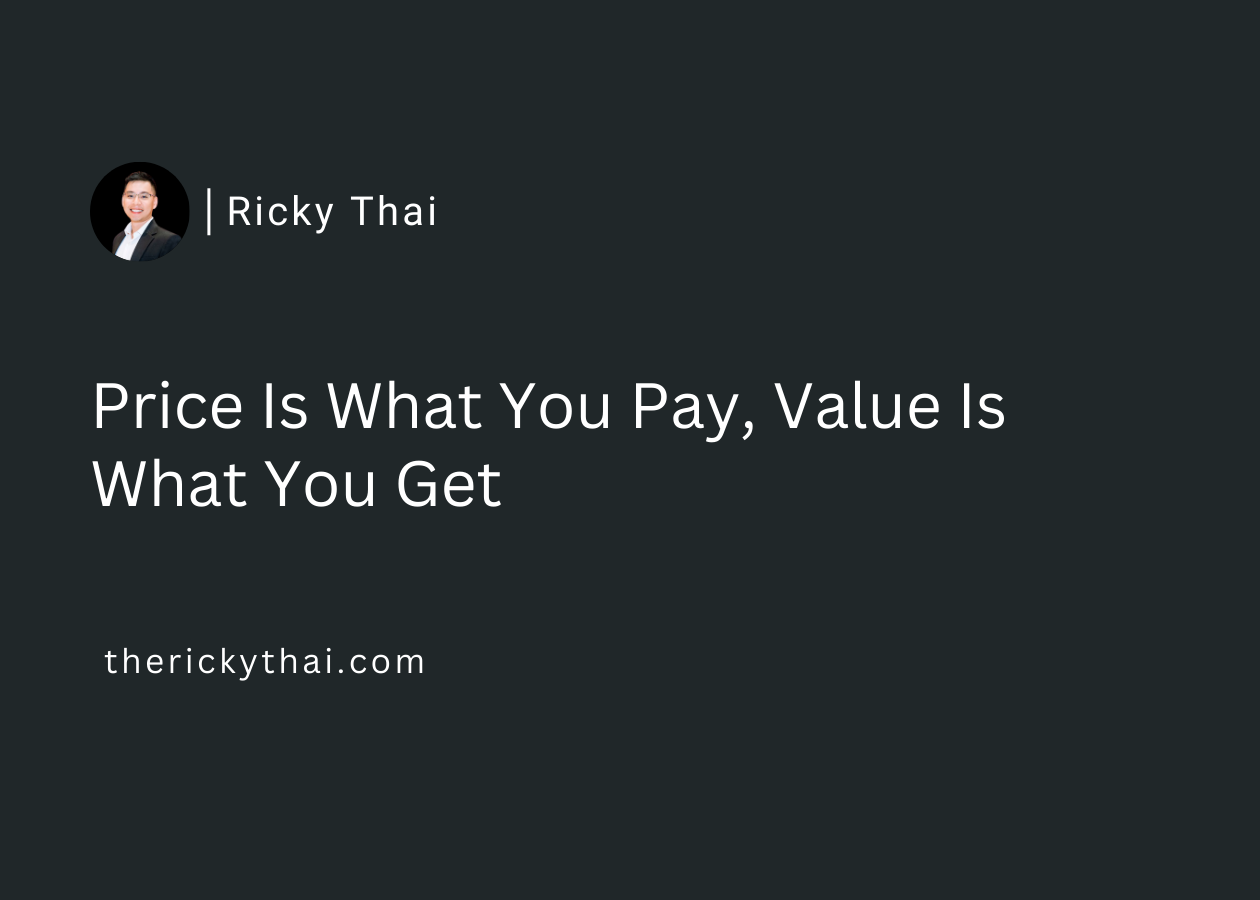Price Is What You Pay, Value Is What You Get
A Reminder for Entrepreneurs Starting Out
The legendary investor Benjamin Graham taught a key principle in value investing:
“Price is what you pay, value is what you get.”
This idea is widely used by professional investors around the world. The “price” refers to what you spend—whether it's money or the time you invest in something.
In investing, you often don’t have control after you've made an investment. Unless you're in private equity, where investors have the power to influence the business, that level of control is rare. As an investor, what you can control is your research and evaluation of the business.
When you build a business as an entrepreneur, you do have control over what you pay, such as negotiating for raw materials or setting an employee’s salary.
But you don’t always know the true value of someone or something until you actually use it. Human often misjudge the value of things, either underestimate or overestimate them, until they have paid for or use them.
For example, you only discover how valuable an employee is after working with them for weeks or months.
Entrepreneur must understand how to manage costs—like offering a salary or bonuses—before fully recognizing someone’s true value. Over time, if an employee provides more value than expected, the business can gradually invest more in them, either by raising their salary or offering bonuses.
We want to pay the lowest price possible when starting out—whether as investors or entrepreneurs—to give ourselves enough time to realize the value of the business. This helps us stay in business and manage the downside risks that can occur, such as running out of cash or facing bankruptcy.


